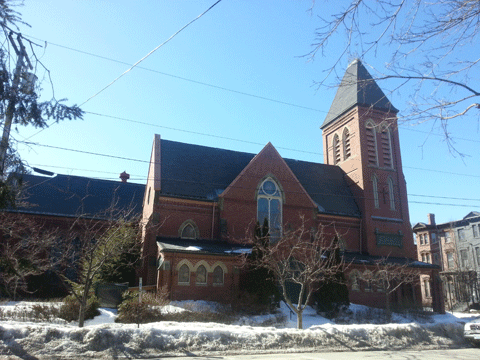Projects that come before the Planning Board have already been reviewed by city planning staff, and often outside experts, such as traffic engineers and stormwater engineers, but there’s still lots of time to make changes. Soley, a developer himself (the hotel on Fore Street is his) whose father is notorious Old Port landlord Joe Soley, says the Planning Board tries “to improve on what the developer has brought to us,” within the standards set by the City Council’s ordinances.
While citizen input is always welcome, earlier is better. Projects can take months to move through the Planning Board, during which time the board has typically requested — and received — many changes from the developer. By the end of the process, the members can find themselves in a bind if new public objections arise, or if citizens ask for additional changes to aspects of the project the board has already addressed.
“To a developer, it might cost a tremendous amount of time, money, and resources to make those changes,” after the company has typically invested a great deal already. The end is “a really difficult time to go backwards,” Soley says. “There’s a point at which it’s unfair.”
Which leaves one last option, where the Midtown project has ended up: “At the eleventh hour the only way to stop [a project] is litigation,” he says.
Mayor Michael Brennan agrees with Soley about getting citizens involved up front, and notes his surprise at the anti-Midtown outcry after more than a decade of discussions about Bayside. “If there were some type of opposition you would have expected it long before” the very end of the process, he says.
However, if the Planning Board’s attitude in this regard seems to favor developers over public concerns, that may be by design. Board members are appointed by the City Council, who are “very developer-friendly,” says Frank Turek, a leader of Friends of Congress Square Park, which leads him to ask (rhetorically) of the Planning Board “a basic philosophical question: What do you do that’s best for the people?”
Soley counters that the Planning Board works hard to fix, not kill, flawed projects, but ultimately when faced with imperfection, must “make our best judgement for what makes sense for the city of Portland.”
Diagnosis #2: Insecurity
But what city leaders think is best can differ significantly from what residents believe. Charles Remmel, one of the plaintiffs in the Williston-West case, and the first president of the Western Prom Neighborhood Association when it was founded in the 1970s, says city leaders should “have a little more faith in how the city will develop,” rather than thinking “if they don’t do [a proposed project] right now, it’s the end and we’ll never get another chance.”
 LYING DORMANT The future of the Williston-West Church is up in the air. |
“Portland has enough vibrancy” to attract good development, Remmel says, citing the city’s thriving food and entertainment scene, which he says has flourished “in spite of” city officials’ efforts.
When faced with these developers’ ideas, “Portland’s insecurities come into play,” Remmel says. City leaders often are “so insecure” that they approve the first thing that comes along. “They don’t have enough faith in themselves.”